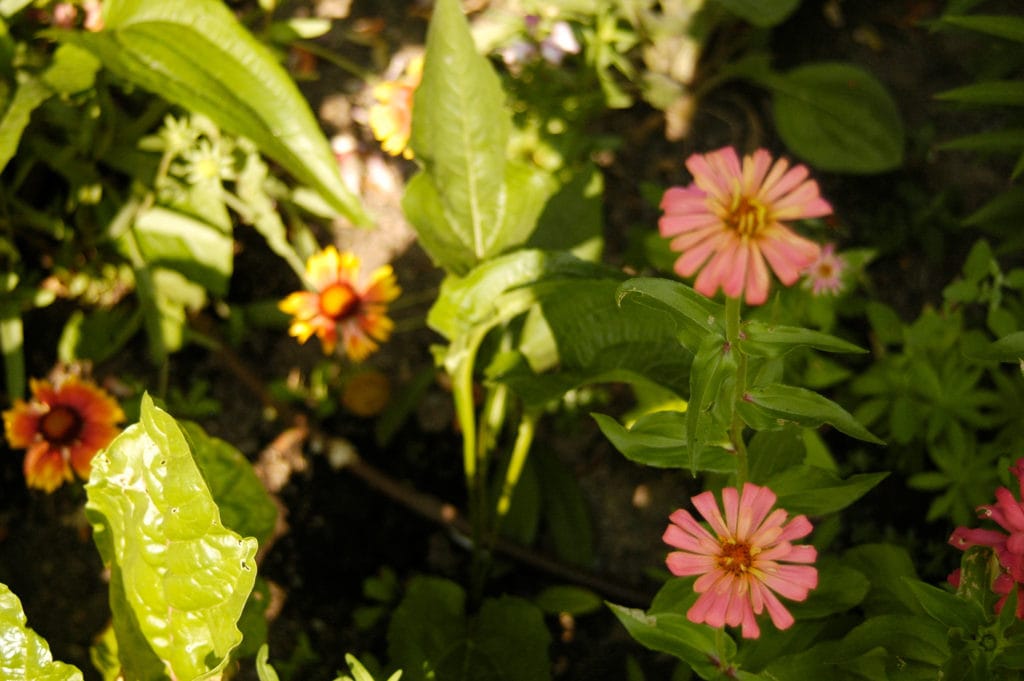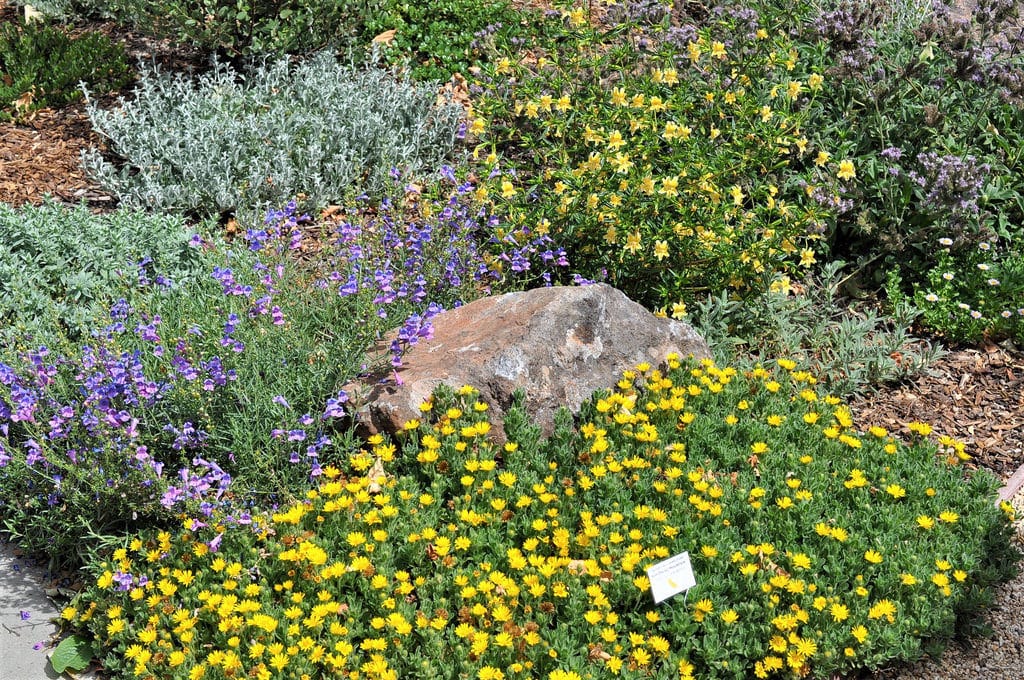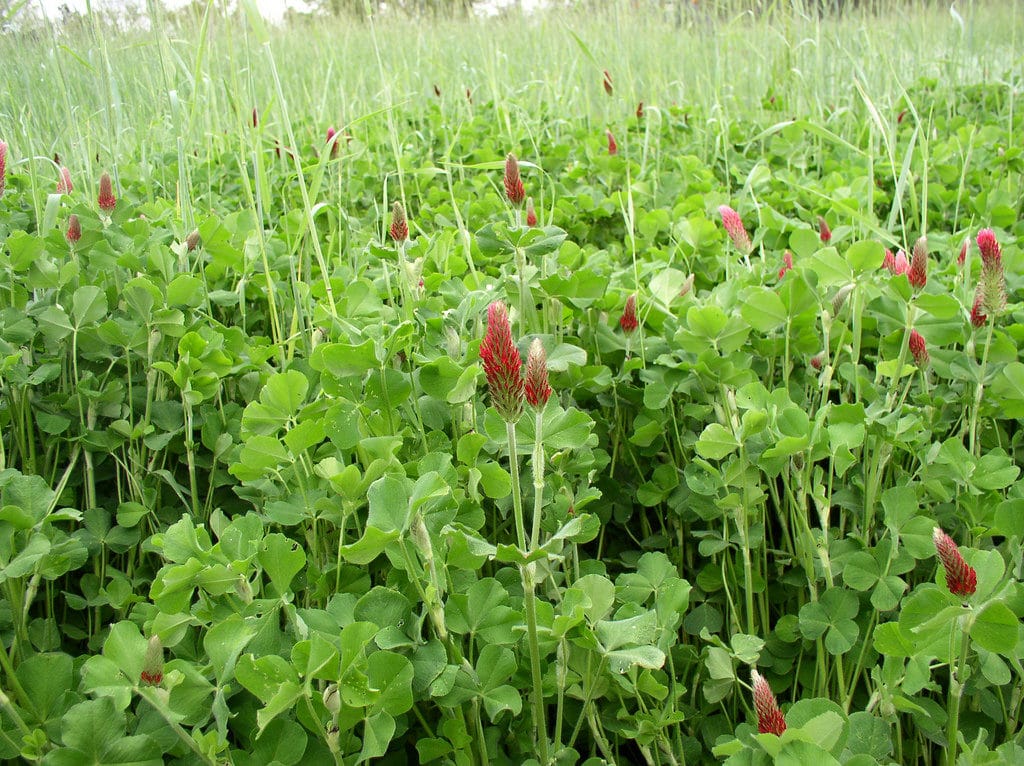Fall Garden Basics: What you need to know about cover crops
This post has also been featured on Mindbody Green.
Let’s revisit the importance of healthy soil as we put our fall gardens to bed!
Aside from your green thumb, the quality of your garden’s soil is one of the most important factors in the success of your plants. That is why, as we gear up for fall, it is a fine time to consider how to replenish our soil and protect it over the winter. This way, we’ll have productive and healthy garden for next season!
Most seeds that we plant deplete nutrients from the soil on their journey from seedling to maturity. The good news is: there is a lot you can do to keep your soil quality in tip-top shape!
 1. As summer winds down, leave the roots of your current plants in the soil bed to decompose, rather than pulling out the entire plant. This will help nourish your soil.
1. As summer winds down, leave the roots of your current plants in the soil bed to decompose, rather than pulling out the entire plant. This will help nourish your soil.
2. Consider cover crops, which are low-maintenance soil builders that give back nutrients, suppress weeds, and manage pests and diseases. You can purchase cover crops at your local gardening store or order them online from a farmer in your area. They are great for gardens of all sizes.
I recommend ordering seeds from local farmers rather than from larger seed corporations because seed success is dependent upon the climate in your region.
Cover crops are planted four weeks prior to the average frost date in your area. Spread the seed densely over the surface of the soil and place a half-inch layer of soil over top with a rake or your hands. Be sure the seeds receive water consistently until they germinate.
Here are 5 benefits of cover crops to consider when planting and harvesting your garden this fall:
1. Cover crops improve soil quality.
Soil quality is improved whenever a plant establishes roots and grows into compacted areas. Water infiltration is improved as well. When a garden bed lays fallow for a period of time, the surface tends to seal and water will run off. Cover crops protect the soil surface and reduce sealing. Also, beneficial organisms in the soil, such as earthworms, thrive when fresh plant material is decomposing. Organic matter levels also tend to improve with the addition of cover crops.
2. Cover crops prevent soil erosion.
Cover crops reduce wind and water erosion on all types of soils. By having the soil held in place by cover crops during the fall, winter, and early spring, the loss of soil from erosion is greatly reduced.
3. Soil fertility is improved.
Legumes such as hairy vetch, clovers and field peas, can add substantial amounts of available nitrogen to the soil. Non-legumes can be used to take up excess nitrogen from previous crops and recycle the nitrogen as well as available phosphorus and potassium to the following crop.
4. Weeds are suppressed.
A dense strand of winter rye or other cover crop can suppress weeds by soil shading. Allelochemicals from cover crops suppress the growth of other plants as a natural herbicide.
5. Problems insects are controlled and beneficial insects are encouraged.
Beneficial insects, such as lady beetles or ground beetles, may be encouraged by planting cover crops.
What happens in spring?
In the spring, cut back the cover crops prior to their full maturity so they do not re-distribute seeds and compete with your next planting cycle. Depending on when you plan to plant your next succession, you can leave a layer of the cover crops you’ve cut back right on top of the soil. You can even add the greens from the cover crops to your compost pile!
Observing the cover cropping cycle from start to finish is an amazing example of how your garden can contribute to nature’s magical flow! If you have vibrant, nutrient rich soil, your plants are guaranteed more success and your belly will reap the benefits. Happy planting!

Now is the time to start think about planting Perennials and revamping your garden!
Check out our Flora-garden Design Services and book a complementary consultation now.


